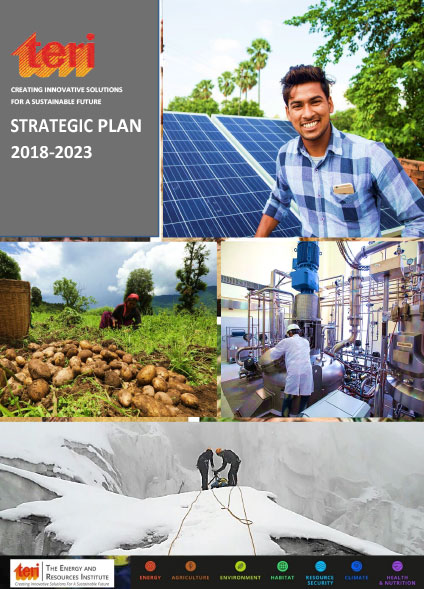The time to act is now
The stakes are high. Resources are becoming scarce, emissions are rising, even as the effects of climate change become more apparent. However, it is not without hope. The world came together to bring their individual efforts into a global fruition by entering the Paris Agreement. From developing to developed, every country has joined hands to tackle the major environmental concerns in unison. Among developing countries, India has been rapidly ushering in efforts to keep the effects of climate change at bay. India has committed to reducing its emissions intensity of GDP by 33%-35% between 2005 and 2030 and increase the use of non-fossil fuels to 40% of our energy mix by 2030. India has already begun the transitional process with significant additions to solar energy generation capacity and a focus on energy efficiency. India, in future, will be confronted with choices-of technology, resource use efficiency, and waste management-which will have a huge impact, both locally and globally. TERI seeks to ensure that the choices India makes are rooted in sustainability, even as they contribute to the national growth story.
A journey of promoting sustainability over four decades
Founded in 1974, TERI began as a knowledge center to cultivate action-oriented research in areas of climate change, environment, energy, and sustainable development. Over the last 40 years, the organization has worked with the government to create policies for energy conservation. On the other hand, it has worked at the grassroots, developing energy efficiency solutions for India's small and medium businesses. TERI has also worked intensively towards developing lighting and cooking solutions that have impacted over 4.5 million people in India and Africa. It has pioneered the use of biotechnology in the petroleum and agriculture sectors in India. It is globally distinguished for hosting the World Sustainable Development Conference, one of the largest international summits dedicated to accelerating the pursuit of sustainable development.
Four decades ago the idea was to initiate a ripple effect that has its roots in a clean and green environment. Today, the effect is rapidly evolving to turn into a norm, making our efficacy crucial. And for us, that is the way forward to create a transformative impact towards sustainability.


